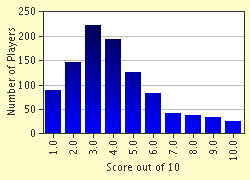Quiz Answer Key and Fun Facts
1. The word "heresy" comes from a Greek root meaning what?
2. Some Christians maintain that Christ died for all, that individuals have the free will to decide whether to accept or reject Christ's gift of salvation, and that salvation is conditional. What do we call this belief?
3. Who taught that Christ was not God, but rather the highest created being?
4. Who taught that only the god of the New Testament was the true God, and that the god of the Old Testament was inferior?
5. What do we call the belief that Christ was not the physical incarnation of God, but rather an appearance or phantom?
6. St. Augustine was devoted, for many years, to this heretical sect, which maintained a dualistic theology.
7. What British monk disputed St. Augustine's view of predestination, teaching instead that there is no original sin, that man is capable of choosing to reject evil, and indeed able to obtain perfection?
8. What patriarch of Constantinople taught that Mary could not be called the "Mother of God," since Jesus was born as man by Mary, but as God by the Father?
9. Which of the following is a Gnostic Gospel?
10. What Gnostic sect worshiped the serpent of Eden?
Source: Author
skylarb
This quiz was reviewed by FunTrivia editor
gtho4 before going online.
Any errors found in FunTrivia content are routinely corrected through our feedback system.

